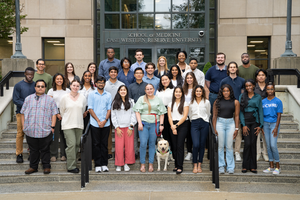
Reception will follow immediately afterward with food and beverages.
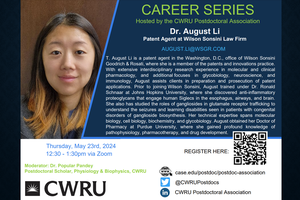
The CWRU Postdoc Association has arranged for speakers via Zoom to share their journey as a postdoc, suggest specific professional development, discuss their current role, and offer advice for someone looking into that career path. Attendees will have the opportunity to ask questions at the end of each presentation. See the attached flyer for more detailed bio info on the speaker and to RSVP.

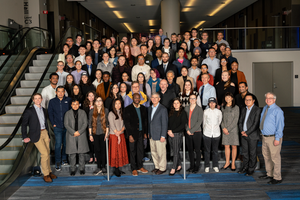
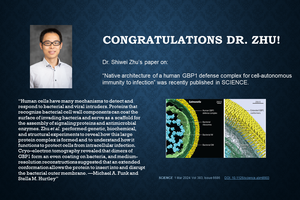
Human cells have many mechanisms to detect and respond to bacterial and viral intruders. Proteins that recognize bacterial cell wall components can coat the surface of invading bacteria and serve as a scaffold for the assembly of signaling proteins and antimicrobial enzymes.
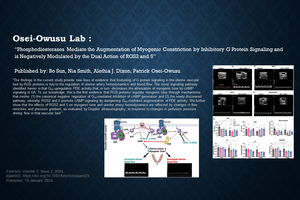
G protein regulation by regulators of G protein signaling (RGS) proteins play a key role in vascular tone maintenance. The loss of Gi/o and Gq/11 regulation by RGS2 and RGS5 in non-pregnant mice is implicated in augmented vascular tone and decreased uterine blood flow (UBF). RGS2 and 5 are closely related and co-expressed in uterine arteries (UA).


Darshan Attmaram's research on cell heterogeneity in microdissected rat nephron segments received an "Honorable Mention" by the APS Physiological Omics Interest Group at the Physiology Summit 2024.
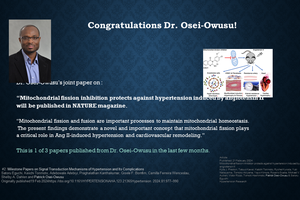
Mitochondrial dysfunction has been implicated in various types of cardiovascular disease including hypertension. Mitochondrial fission fusion balance is critical to mitochondrial quality control, whereas enhanced fission has been reported in several models of cardiovascular disease.
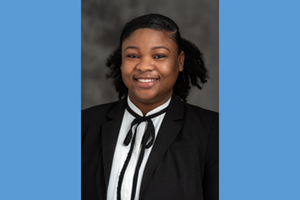
Investigation of the interaction between aging, ovarian hormones, and elastin haploinsufficiency on cardiovascular regulation by the kidney
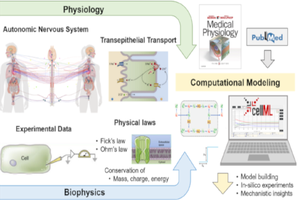
A team of investigators from CWRU (Rossana Occhipinti, PhD and Walter Boron, MD, PhD), UCSD (Maryann Martone, PhD and Jeffrey Grethe, PhD) and University of Auckland (Peter Hunter, PhD, Bernard deBono, MD, PhD, and David Nickerson, PhD) has been recently awarded a five-year Research Education Grant (R25) from the National Institute of Diabetes and Digestive and Kidney Diseases (NIDDK). The grant, “FAIR DOs: Findable, Accessible, Interoperable, Reusable Development of Open Simulations”, will support the development of a research education program in computational modeling of the neural regulation of transport processes by digestive and renal epithelia, as we leverage teaching structures at CWRU as well as Stimulating Peripheral Activity to Relieve Conditions (SPARC)-generated resources.
The ultimate goal of the program is to train the next generation of researchers and clinicians in the use and development of FAIR computational models, thereby promoting a spirit of openness and collegiality within the NIDDK-funded research community.